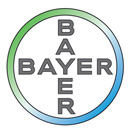Lead Safe Renovation Contractor License
Publicado el 22/3/2023
If youŌĆÖre a homeowner or contractor in the United States, you may have heard of lead-safe renovation contractor licenses. These licenses are critical for ensuring that contractors who work on older homes with lead-based paint know how to handle the harmful substance safely. In this article, weŌĆÖll cover what lead-safe renovation contractor licenses are, why theyŌĆÖre essential, and how to obtain one.
What is a Lead-Safe Renovation Contractor License?
A lead-safe renovation contractor license is a certification that enables a contractor to work on homes built before 1978, when lead-based paint was commonly used in residential properties. The Environmental Protection Agency (EPA) requires contractors who work on these types of homes to have specialized training in lead-safe work practices. The license confirms that a contractor has completed this training and is knowledgeable about lead-safe work practices.
Why is a Lead-Safe Renovation Contractor License Important?
Lead poisoning is a severe health risk, especially for children, whose developing brains and bodies are more vulnerable to the effects of lead. Exposure to lead can lead to developmental delays, learning difficulties, and behavioral problems. Lead-safe work practices help to prevent dust and debris from lead-based paint from spreading during renovation projects, reducing the risk of lead exposure to both workers and occupants.
Additionally, the EPA has strict rules about how lead-based paint must be handled during renovations. Failure to follow these rules can result in hefty fines and legal consequences. Having a lead-safe renovation contractor license ensures that contractors are familiar with these rules and are operating their businesses in compliance with federal regulations.
How to Obtain a Lead-Safe Renovation Contractor License
To obtain a lead-safe renovation contractor license, a contractor must complete an eight-hour lead-safe work practices training course approved by the EPA. The training covers topics such as how to contain lead dust, proper cleanup procedures, and the use of personal protective equipment. Once an individual has completed the training, they must submit an application, along with proof of training completion, to the EPA.
After the EPA approves the application, the individual will receive their lead-safe renovation contractor license. The license is valid for five years, after which the contractor must renew their license by completing a four-hour refresher course on lead-safe work practices.
Conclusion
In conclusion, lead-safe renovation contractor licenses are vital for ensuring that contractors who work on older homes with lead-based paint are knowledgeable about lead-safe work practices. These practices help to prevent lead exposure to both workers and occupants and ensure compliance with federal regulations. If youŌĆÖre a contractor who works on older homes, obtaining a lead-safe renovation contractor license should be a top priority. For homeowners, hiring a contractor with a lead-safe renovation contractor license can help to ensure the safety of your family and minimize the risk of lead exposure.
- Free Template for Prenuptial Agreement
- Material Handling Agreement Form
- Kentucky Marriage Separation Agreement
- China`s-Parliament-Ratifies-Paris-Climate-Change-Agreement-Ahead
- Contract Law Agreement Example
- Edit Rent Agreement
- Pie Agreement Definition
- Isda Agreement Template Pdf
- Distributor Agreement Auf Deutsch
- Pa Collaborative Agreement Texas


Hipertension Pulmonar Chile de Ramlight Studio está bajo licencia Creative Commons Atribución-No Comercial-Sin Derivadas 3.0 Unported.